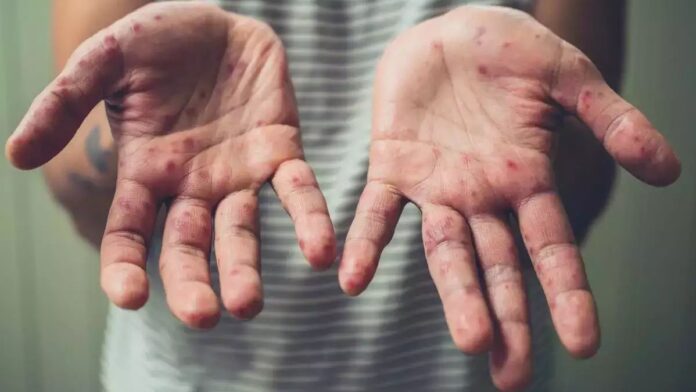KUALA LUMPUR, Nov 29 — Nine cases of monkeypox infection (mpox) involving a foreign national and eight locals were reported in the country between July and November this year.
Deputy Health Minister Datuk Lukanisman Awang Sauni said the first two cases were recorded in Kuala Lumpur in July, the third and fourth cases in Selangor last month, the fifth case in Sarawak last Nov 5, while the remaining four latest cases were also reported in the federal capital.
“The ministry is intensifying measures to control and prevent mpox infection including conducting monitoring at the country’s international entry points in collaboration with the Malaysian Immigration Department for early detection of travellers with symptoms.
“For the admission of foreign students to higher education institutions, especially from countries that have reported cases of mpox or endemic mpox, they are required to monitor themselves for any symptoms for 21 days and to seek treatment if they have the symptoms,” he said.
He said this during the question and answer session at the Dewan Rakyat today in response to a question from Sabri Azit (PN-Jerai) regarding preventive measures taken by the ministry to ensure that the mpox infection that has been reported to exist in Malaysia is not contagious like the COVID-19 virus.
Referring to the Malaysia Mpox Management Guidelines 2023, Lukanisman said those infected with the virus and close contacts are required to go through a period of isolation in their homes or appropriate locations until they are confirmed free of infection.
“For monitoring purposes, we have 11 sentinel clinics consisting of seven government and four private facilities, while for early detection of infection, we have a virus detection test service through 12 laboratories including four private facilities,” he added.
Meanwhile, Lukanisman told Parliament that the release of Aedes mosquitoes with Wolbachia bacteria was proven to be able to control and overcome the increase in dengue outbreaks.
He said the initiative was first implemented in 2019 which saw 19 mosquito-release localities recording a 100 per cent decrease in dengue cases.
“Until now, there are 31 mosquito-release locations throughout the country with plans to add 10 new locations every year,” he added.
He was responding to a question by Datuk Seri Dr Shahidan Kasim (PN-Arau) about drastic measures by the ministry to curb the increasing number of dengue cases.
Lukanisman said Aedes mosquitoes with Wolbachia bacteria are not dangerous to humans, instead, they eliminate the dengue virus when they mate with normal Aedes mosquitoes.
Although it is an effective method, he said, the ministry could not implement it on a large scale as it is costly, with the average price of an Aedes mosquito carrying Wolbachia ranging from 30 to 45 cents each.
He said based on the data of the 47th epidemiological week (ME47) for the period from Nov 19 to 25, the cumulative number of dengue cases was 108,429 compared to 56,304 cases for the same period in 2022, which is an increase of 52,125 cases or 92.6 per cent.
















